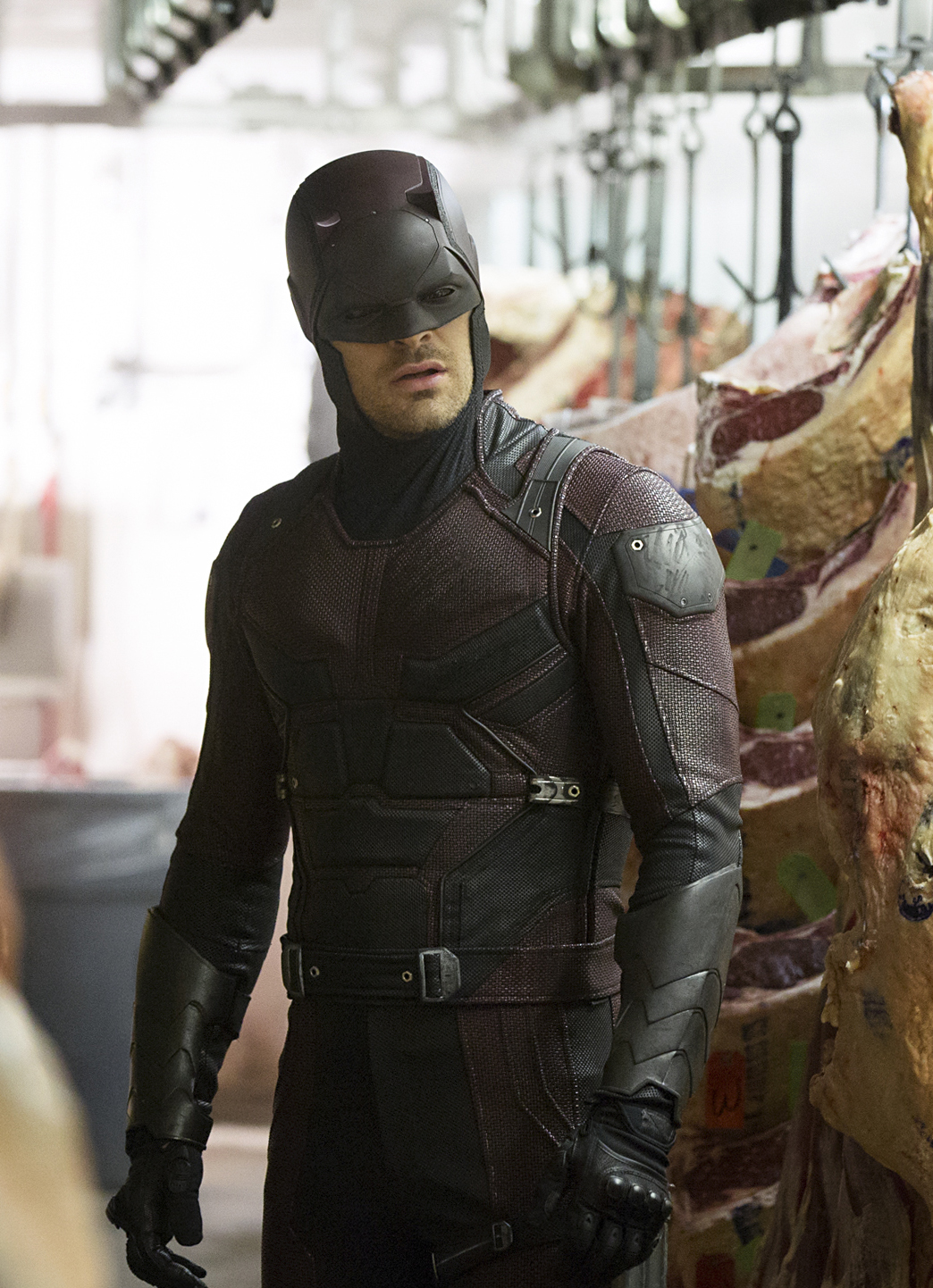
Superheroes may rule movie screens, but they’ve also done a pretty good job of colonizing television, too. ABC airs two different shows set in the Marvel universe, while the CW has The Flash and Arrow, based on DC Comics properties. Netflix, though, has made the biggest bet, with Daredevil and Jessica Jones as part of a strategy to combine four different Marvel shows into a team-up series, The Defenders, somewhere down the line.
Watching Daredevil’s second season, which launches on Netflix March 18, it’s hard not to feel that one is being taken for a long, and not particularly enjoyable, ride. Every television show is a cog in a long-term strategy to some extent; that’s how networks have always worked. But few have ever been quite as programmatic as Daredevil, an hours-long trailer for some entirely different show.
Daredevil tells the story of Matt Murdock, a blind attorney who, by night, takes on society’s ills on the streets of the Hell’s Kitchen neighborhood in New York City. (In real life, Hell’s Kitchen has become a gentrified zone for Thai restaurants and home-decor shops, but this is the Marvelverse.) Murdock, played by Charlie Cox, has such heightened senses that his blindness is no impediment. In fact, it becomes an advantage in long, dark fistfights by moonlight that tend to resolve little.
The series’s tone is as dark as its lighting. The first season was a buildup to a confrontation with flamboyant archvillain Wilson Fisk (played by Vincent D’Onofrio, the only person on set enjoying himself) that parceled out occasional delights along with its lugubriousness. It’s worth noting, perhaps, that then and now, Daredevil was among TV’s most gratuitously violent shows. It was a series that was frankly tough to look at.
Even by the show’s own standard, though, a new character goes too far. Daredevil’s vigilantism has sparked an unduly violent imitator, the Punisher (Jon Bernthal) whom Daredevil must bring to heel. There are interesting ideas about vengeance and right and wrong in the conversation around him—literally a conversation, one held between Murdock and his fellow attorneys in a goofily direct way. “Vengeance is not justice. What he’s doing is completely wrong!” Murdock intones. But hamhandedly presented though it is, at least that’s an idea. Otherwise, the character’s actual presence is, well, punishing. The Punisher isn’t integrated into the Daredevil world—indeed, that world has so little character that no one really could—so much as just plopped in front of viewers who are instructed he’s important now. He stands, really, for nothing aside from forward motion. Bernthal’s spinoff is already in the works.
This unsophisticated storytelling is what makes the nihilism of Daredevil feel like a kid playing dress-up. The big-screen Batman franchise, for instance (soon to star Ben Affleck, who played Daredevil in a 2003 film), toys with the darkness in men’s souls, but has historically moved with some decisiveness when it comes to good-vs.-evil battles. And Marvel’s movies are all set-ups for the next big one, but each of them grants far more in the way of character and backstory than Daredevil has given us about Murdock, a bland and very gifted guy who believes in justice. Granted 13 hours a season to unspool a story that’s meant to end up on another series entirely, Netflix plays out the string with tangents, meaningless backstory, and the introduction of new characters (Elodie Yung as Elektra, played by Jennifer Garner in 2003) who add more attitude than substance.
Netflix recently produced a wonderful TV show: Jessica Jones, which launched last November, brought to the fore creative ideas about depicting trauma that built cumulatively and made the show stand on its own. Paradoxically, its lack of reverse-engineering towards its conclusion made viewers actually want to see more. By contrast, Daredevil just wants to dole out fun doses of extreme gore on the path to an endpoint on a business plan. Any viewer committed to story is left searching in the dark.
More Must-Reads From TIME
- The 100 Most Influential People of 2024
- The Revolution of Yulia Navalnaya
- 6 Compliments That Land Every Time
- What's the Deal With the Bitcoin Halving?
- If You're Dating Right Now , You're Brave: Column
- The AI That Could Heal a Divided Internet
- Fallout Is a Brilliant Model for the Future of Video Game Adaptations
- Want Weekly Recs on What to Watch, Read, and More? Sign Up for Worth Your Time
Contact us at letters@time.com